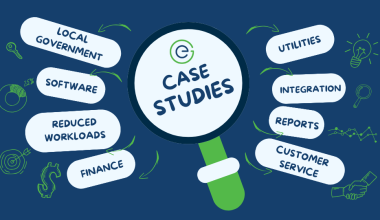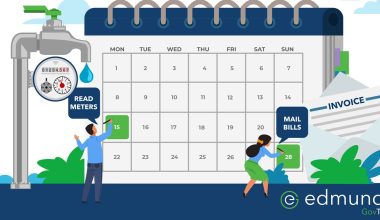From time to time I hear from utilities considering changing from bi-monthly to monthly billing.
Historically, the primary reason utilities have billed less frequently than monthly, for example bi-monthly or quarterly, is the amount of time required to complete the meter reading process. As utilities transition from manual meter reading to automated meter reading, the meter reading process is no longer an inhibiting factor to monthly billing.
Let’s take a look at the pros and cons of making the switch. First, the pros…
Improved cash flow
One of the primary reasons for moving from bi-monthly to monthly billing is to even out cash flow. Rather than receiving large amounts of cash one month and little the next, monthly billing allows the utility’s cash flow to level out month to month.
More convenient for customers to remember when bills are due
Monthly billing is also more convenient for customers. Rather than having to remember if the utility bill is due this month, or if it was last month, your customers will know they have a utility bill due each month.
Easier for customers to budget
Just as monthly billing levels out the utility’s cash flow, it also facilitates easier budgeting for your customers. Going forward, they will know they have a smaller bill due every month.
Facilitates earlier detection of customer leaks
Monthly billing will also lead to fewer losses due to leaks. By reading meters more frequently, excessively large meter readings due to leaks are detected sooner. By doing this, you will be doing customers who have leaks in the future a service by reducing the amount of their water bill.
Less revenue loss from leak adjustments
If your utility provides adjustments for water leaks, monthly billing will also reduce future losses from leak adjustments because the amount of water lost to leaks will be reduced.
Now, for some of the cons…
Doubles workload of office staff
The most obvious disadvantage of monthly billing is the doubling of workload of your staff. Meter readings, billings and delinquent processes all will occur twice as often and the volume of payments and adjustments will double.
Additional expense to the utility
In addition to staff workload doubling with monthly billing, all associated expenses will also double. This includes fuel and vehicle expenses for meter readings, business forms, mailing and postage costs, and paper and consumables for printers.
Habitually late customers will incur twice as many fees
While monthly billing will generally be perceived by your customers as being an improvement over bi-monthly billing, one segment of your customer base will be adversely affected. Habitually delinquent customers who do not pay their bill until being cut off for non-payment will incur both the penalty and reconnect fee every month, rather than every other month.


